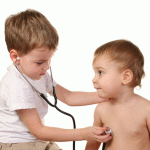Pediatrics
|
26 october 2014 01:46:40 |
| Children`s psychological and behavioral responses following pediatric intensive care unit hospitalization: the caring intensively study (BMC Pediatrics) |
|
Tweet Background:
Pediatric intensive care unit (PICU) hospitalization places children at increased risk of persistent psychological and behavioral difficulties following discharge. Despite tremendous advances in medical technology and treatment regimes, approximately 25% of children demonstrate negative psychological and behavioral outcomes within the first year post-discharge. It is imperative that a broader array of risk factors and outcome indicators be explored in examining long-term psychological morbidity to identify areas for future health promotion and clinical intervention. This study aims to examine psychological and behavioral responses in children aged 3 to 12 years over a three year period following PICU hospitalization, and compare them to children who have undergone ear, nose and/or throat (ENT) day surgery.
Methods:
This mixed-methods prospective cohort study will enrol 220 children aged 3 to 12 years during PICU hospitalization (study group, n = 110) and ENT day surgery hospitalization (comparison group, n = 110). Participants will be recruited from 3 Canadian pediatric hospitals, and followed for 3 years with data collection points at 6 weeks, 6 months, 1 year, 2 years and 3 years post-discharge. Psychological and behavioral characteristics of the child, and parent anxiety and parenting stress, will be assessed prior to hospital discharge, and again at each of the 5 subsequent time points, using standardized measures. Psychological and behavioral response scores for both groups will be compared at each follow-up time point. Multivariate regression analysis will be used to adjust for demographic and clinical variables at baseline. To explore baseline factors predictive of poor psychological and behavioral scores at 3 years among PICU patients, correlation analysis and multivariate linear regression will be used. A subgroup of 40 parents of study group children will be interviewed at years 1 and 3 post-discharge to explore their perceptions of the impact of PICU hospitalization on their children and enhance our understanding of findings generated from standardized measures in the larger cohort study. An interpretive descriptive approach will guide qualitative data collection and analysis.DiscussionThis study aims to generate new information regarding the magnitude and duration of psychological and behavioral disturbances among children admitted to PICUs, potentially leading to remedial or preventive interventions. |
| 97 viewsCategory: Pediatrics |
 Dose of early intervention treatment during children`s first 36 months of life is associated with developmental outcomes: an observational cohort study in three low/low-middle income countries (BMC Pediatrics) Dose of early intervention treatment during children`s first 36 months of life is associated with developmental outcomes: an observational cohort study in three low/low-middle income countries (BMC Pediatrics)Cutaneous vasculitis in patients with autoimmune polyendocrine syndrome type 1: report of a case and brief review of the literature (BMC Pediatrics) 
|
| blog comments powered by Disqus |
MyJournals.org
The latest issues of all your favorite science journals on one page
The latest issues of all your favorite science journals on one page



